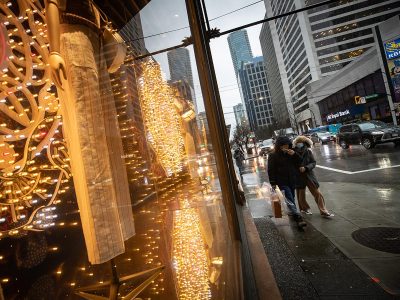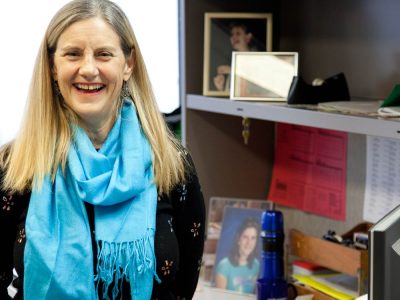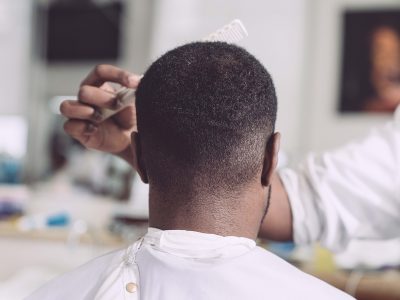By Dan Rubinstein
Photos by Josh Hotz
Carleton is increasingly recognized as the most accessible university in Canada, but it’s a bit of a secret that the strong culture of volunteerism among students is a crucial part of the school’s ability to create such an inclusive and supportive environment.
“We hold volunteers in the highest regard,” Raymond Cho, Ontario’s Minister for Seniors and Accessibility, said on April 1 at a celebration in the University Centre galleria honouring the more than 1,800 students who volunteer at Carleton’s Paul Menton Centre for Students with Disabilities (PMC).
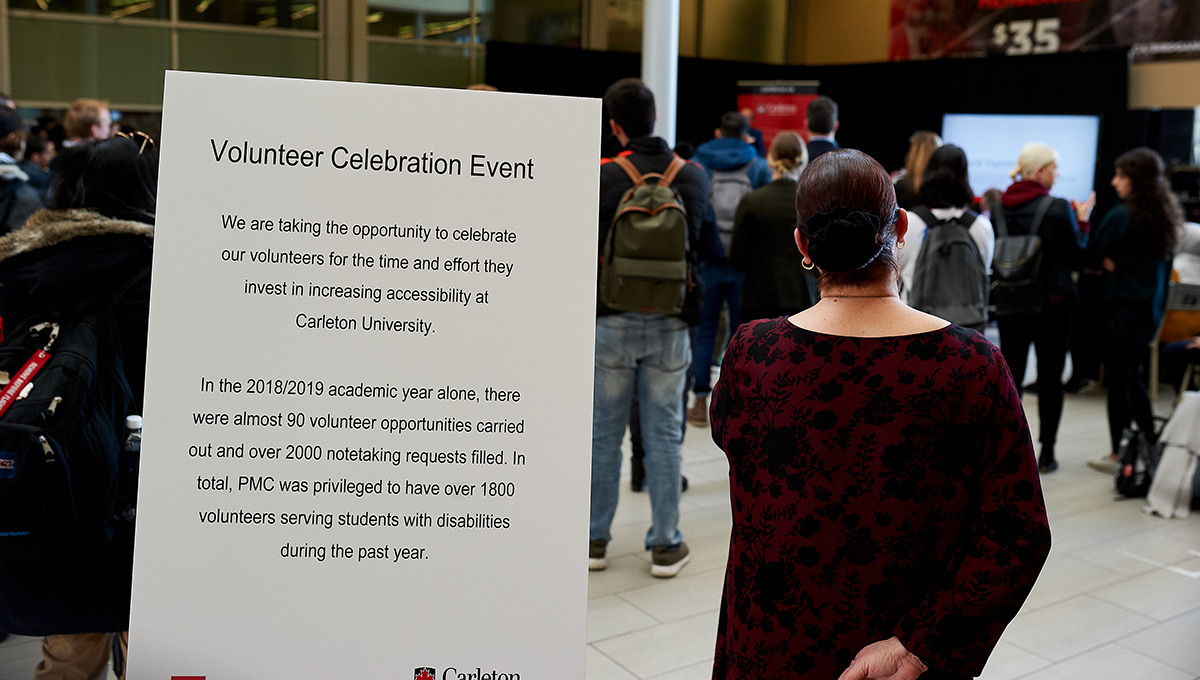
“Volunteers, all of you, you love what you’re doing, and what’s more valuable than love?” said Cho. “And not just love, but you share your time, which is life.”
Cho, who came to Carleton last August for a look at the university’s accessibility-related research labs and programs, told an audience of a couple hundred — including several dozen PMC volunteers — about his own journey to success.
After immigrating to Canada from Korea in 1967, he faced discrimination and could only get a job as a dishwasher. But he was guided by advice from his mother, who ran a shelter for homeless people and told her son, “Always help people who are in need. You have to dream big and think big, but always work hard and help others.”
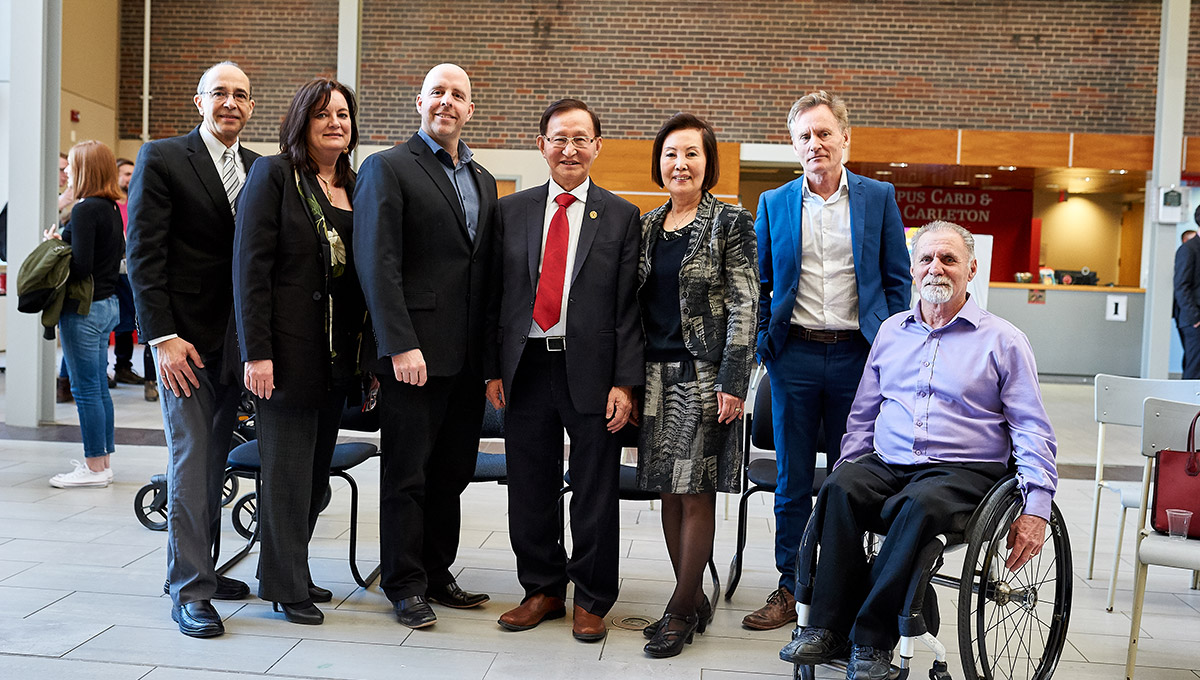
Canada’s Number One Accessible University
Cho went on to earn master’s degrees in social work and education and a PhD in counselling psychology in Toronto, working as a social worker before becoming a city councilor and then entering provincial politics.
Although Cho has led volunteer groups that built homes in typhoon-ravaged Philippines and worked with AIDS patients in Jamaica, when he was a university student he only thought about getting good marks and winning the next basketball or baseball game.
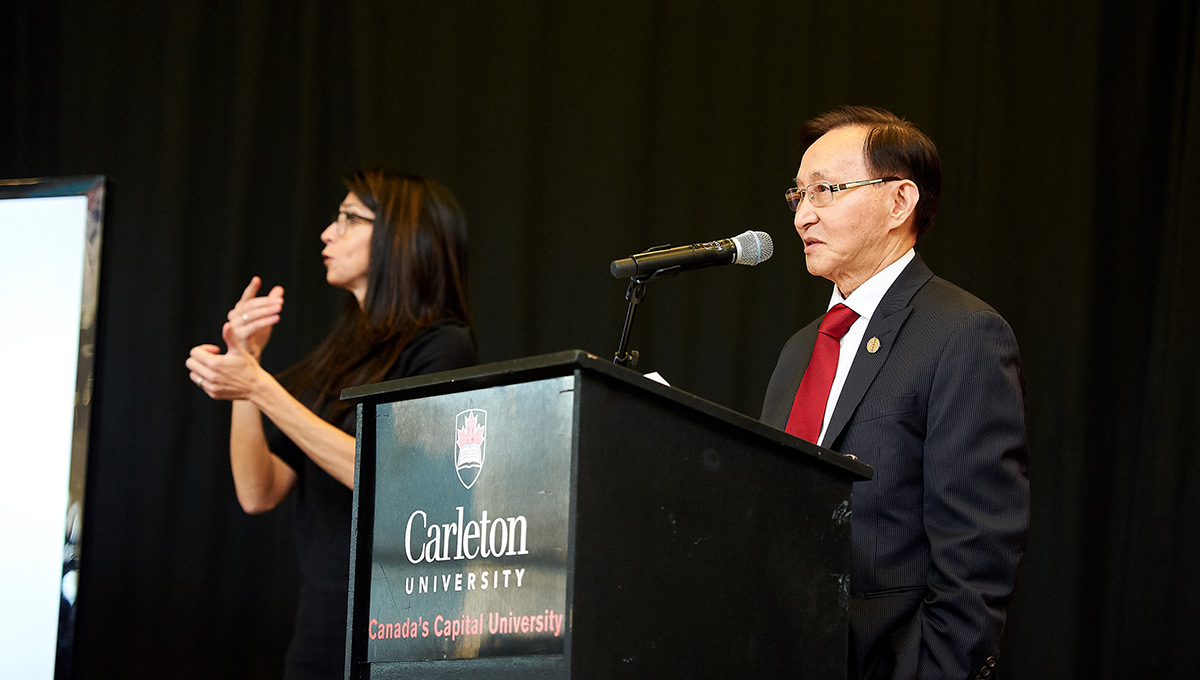
Minister Raymond Cho
“I never thought about helping other students, but you are different,” he said at Carleton, which he called “Canada’s number one accessible university.”
“You can change the world. Not just here. Each one of you, you have unlimited potential. We need you to help change the world for the better.”
Cho also talked about one of his sons, a Cambridge and Yale graduate who is now a plastic surgeon, who taught a senior citizen to swim as a volunteer when he was still in high school.
“If I could do that, I can do anything,” his son said at the time.
“Every one of you,” said Cho, “you have that potential.”
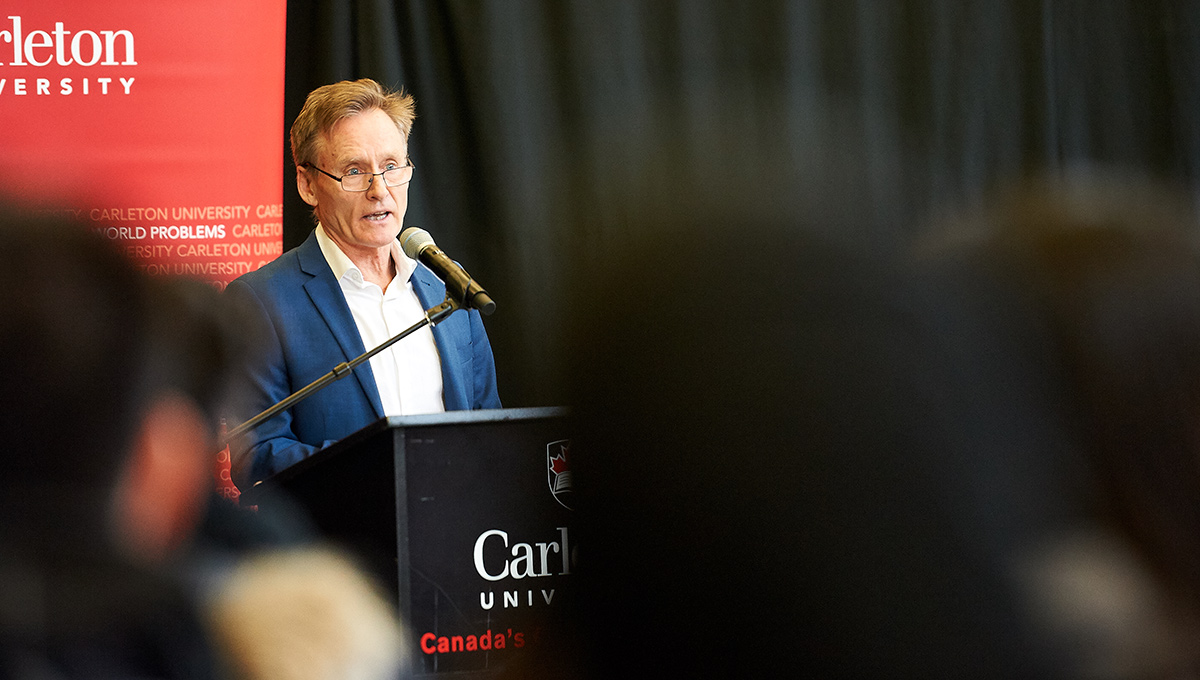
Good Things Come Through Volunteerism
Cho was introduced at the event by PMC Director Larry McCloskey, who recalled the early days of accessibility at Carleton, when the university’s first-of-its-kind 24/7 residence-embedded attendant services program relied on volunteers.
“Good things come through volunteerism,” said McCloskey, noting that these days the centre’s 1,800 volunteers serve about twice that number of students, performing duties such as notetaking, tutoring and transcribing audio.
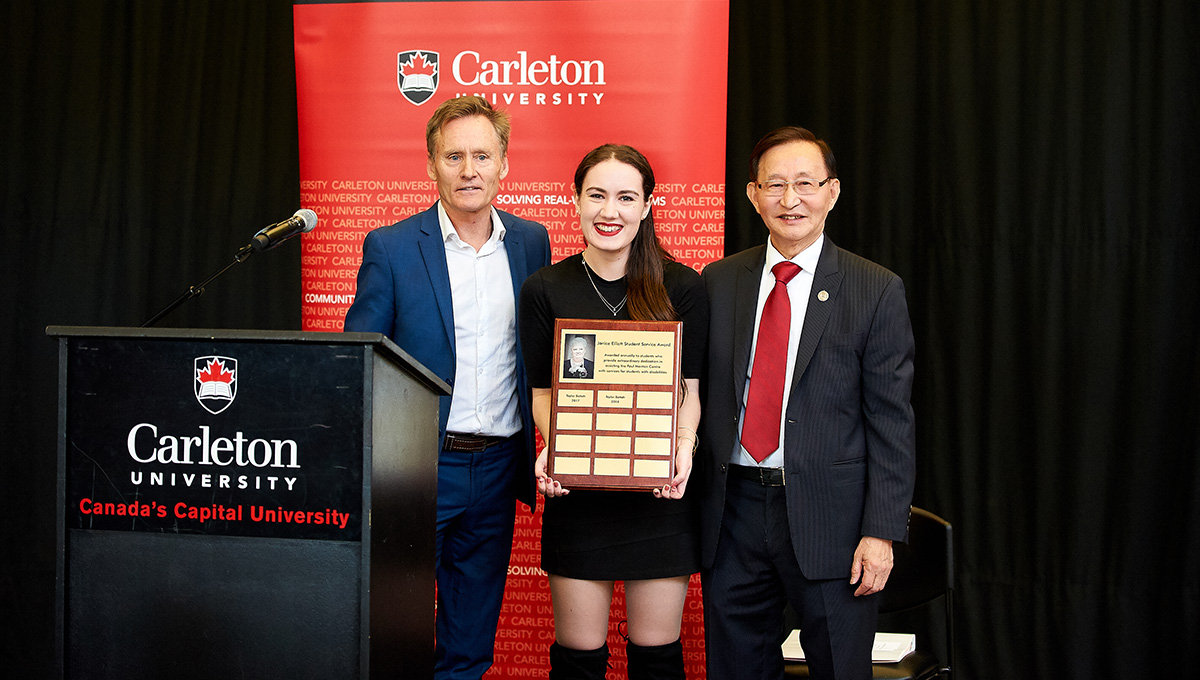
Larry McCloskey, Taylor Battah, and Minister Raymond Cho
“It has become such an amazing phenomenon,” he said.
“It’s an unheralded aspect of the culture of accessibility here — volunteerism is hugely important.”
McCloskey and Cho presented the PMC’s Janice Elliott Students Services Award — named after a longtime and deeply loved Carleton staff member who passed away in 2016 — to student and volunteer Taylor Battah, who has won the bursary in both of its first two years.
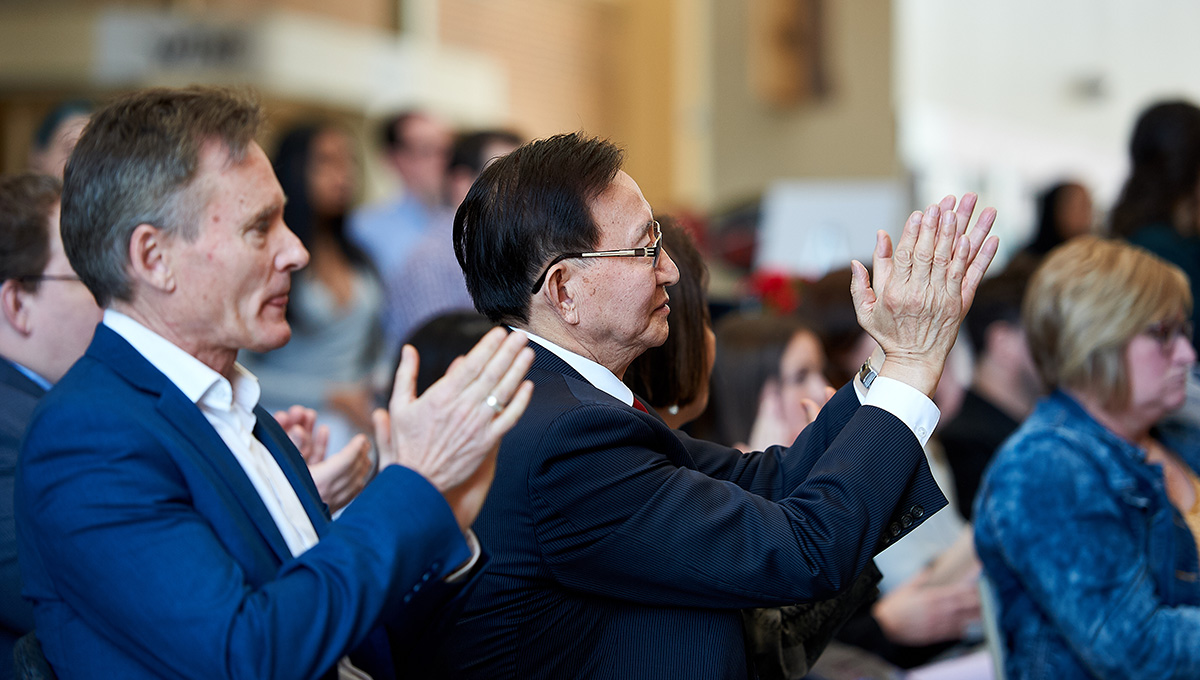
The Best Volunteer Notetaking Systems in the Country
Bruce Hamm, the PMC’s student support and financial administrator, also spoke at the gathering and said he didn’t recall that many volunteers ever getting together before.
“I believe we have one of the best if not the best volunteer notetaking systems in the country,” said Hamm.
“We are matching volunteers with notetaking requests at a rate of 95 per cent, which is the best rate in the province.”
The PMC’s notetaking match rate used to be about 58 per cent, which was around the provincial average, until about five or six years ago, said Hamm, when it became “the thing to do.”
“Why the leap?” he asked.
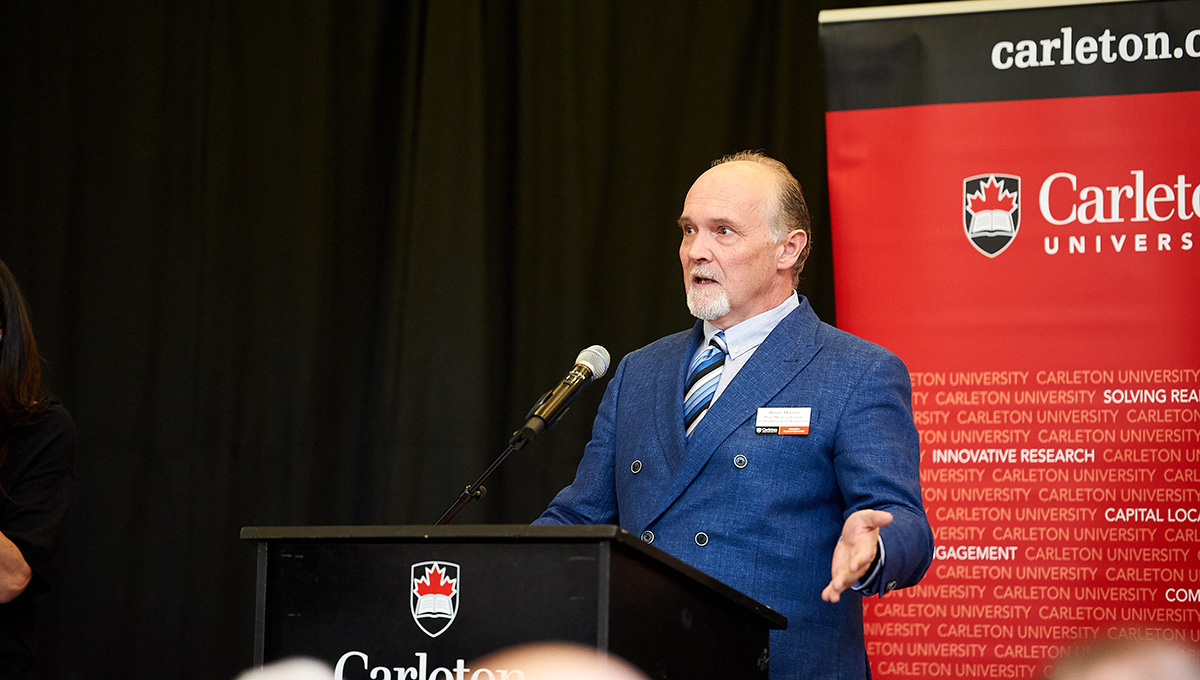
Bruce Hamm
Typically, Hamm explained, a student will request notetaking support, a professor will make an announcement to their class, and a volunteer will step up.
In recent years, however, students have volunteered to become note-takers proactively, telling the PMC which classes they’re enrolled in should a request for notetaking emerge in any of their classes.
“Students have recognized there’s a need among students on campus, and have stepped forward to do something about it,” said Hamm, adding that the week of April 7 to 13 happens to be National Volunteer Week.
“We know that each and every one of you brings a very specific skillset and talent,” he said to the volunteers in attendance, “and we also know that employers recognize that.”
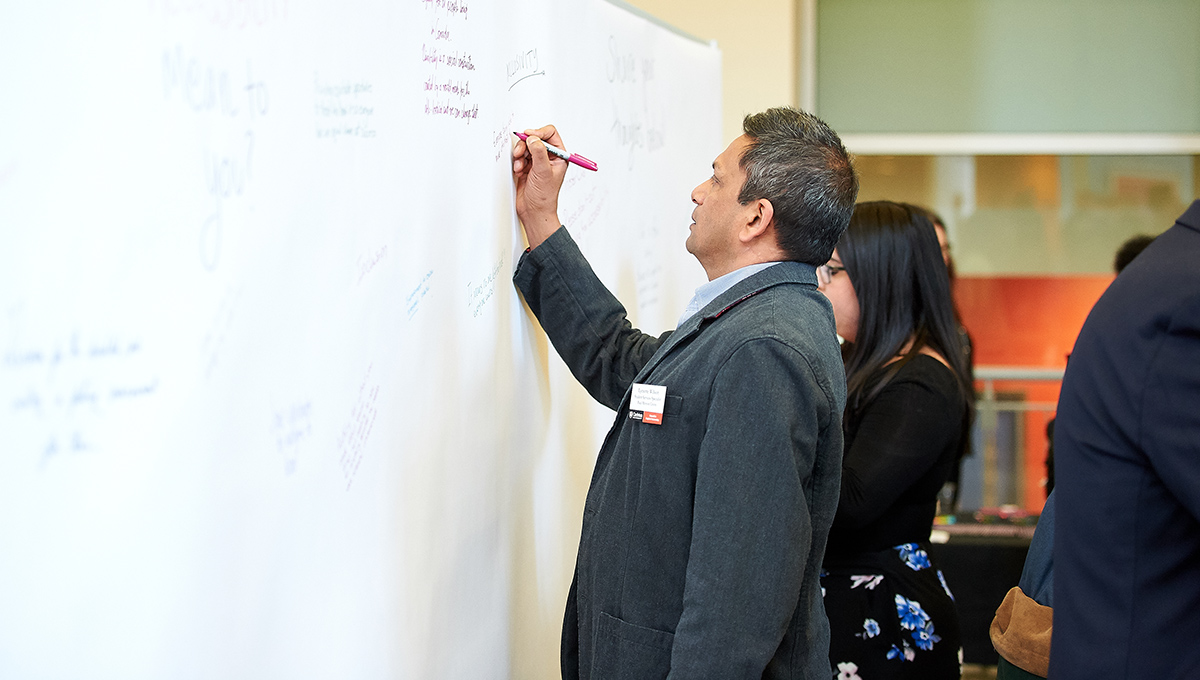
Expertise in Accessibility, Disabilities and Inclusion
The culture of accessibility at Carleton goes beyond the underground tunnels and PMC, said Hamm, and includes programs such as the READ (Research, Education, Accessibility and Design) Initiative and David C. Onley Initiative for Employment and Enterprise Development.
READ was established to highlight, celebrate and cultivate Carleton’s expertise, leadership and collaboration with the community to create greater accessibility and a more inclusive world. It supports increased program emphasis and facilitates academic programming, course offerings and training expertise in accessibility, disabilities and inclusion, and advances research to inform applied development and design in accessibility across disciplines and sector.
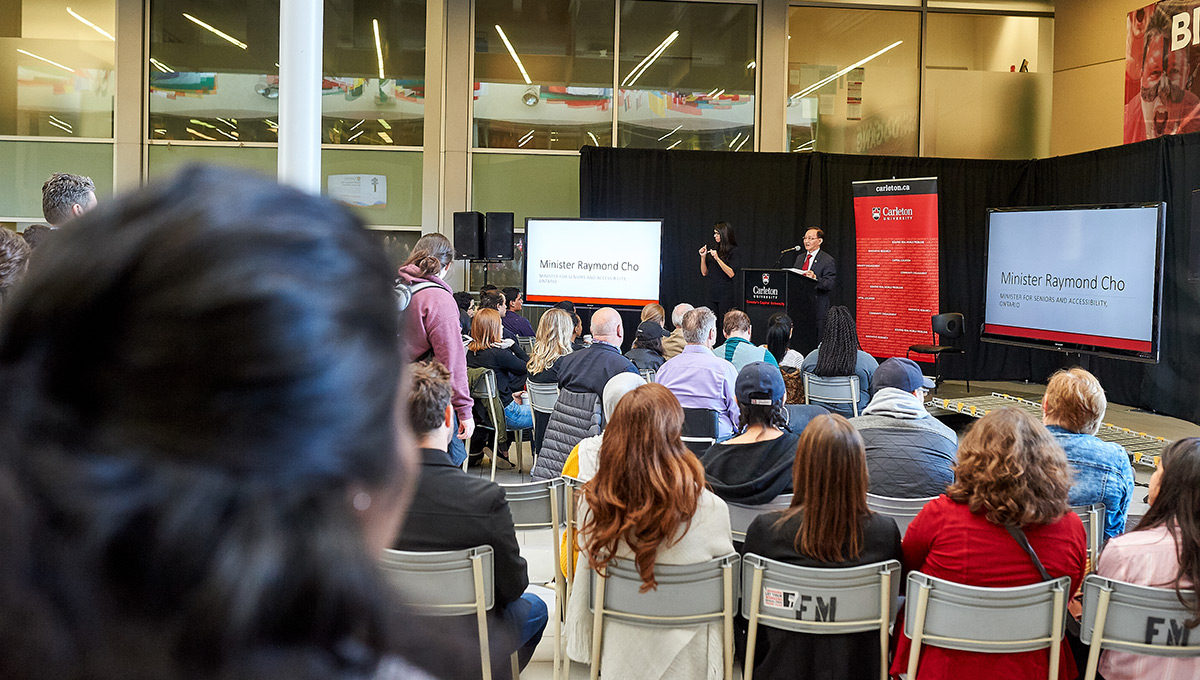
The $5-million Onley Initiative is an Ontario government-funded partnership between four post-secondary institutions in Ottawa to develop knowledge, resources and tools to support students with disabilities in their employment readiness and career aspirations.
The PMC, meanwhile, provides a variety of support services to students with disabilities, including one-on-one learning support, adaptive equipment loans and sign language interpretation.
It plays a leading role in the co-ordination of disability services on campus and, since opening in 1990, the centre has worked in partnership with the Carleton community to increase accessibility and the integration of students with disabilities into all aspects of university life.
These programs and initiatives are crucial, said Hamm.
“But I think there is one other reason — and possibility the most important reason — why Carleton is the most accessible university in Canada,” he said.
“To see that reason, you only need to look to the people here today, whose efforts day in and day out make Carleton the most accessible university in the country.”
Tuesday, April 2, 2019 in Accessibility, Paul Menton Centre, Student Experience
Share: Twitter, Facebook

